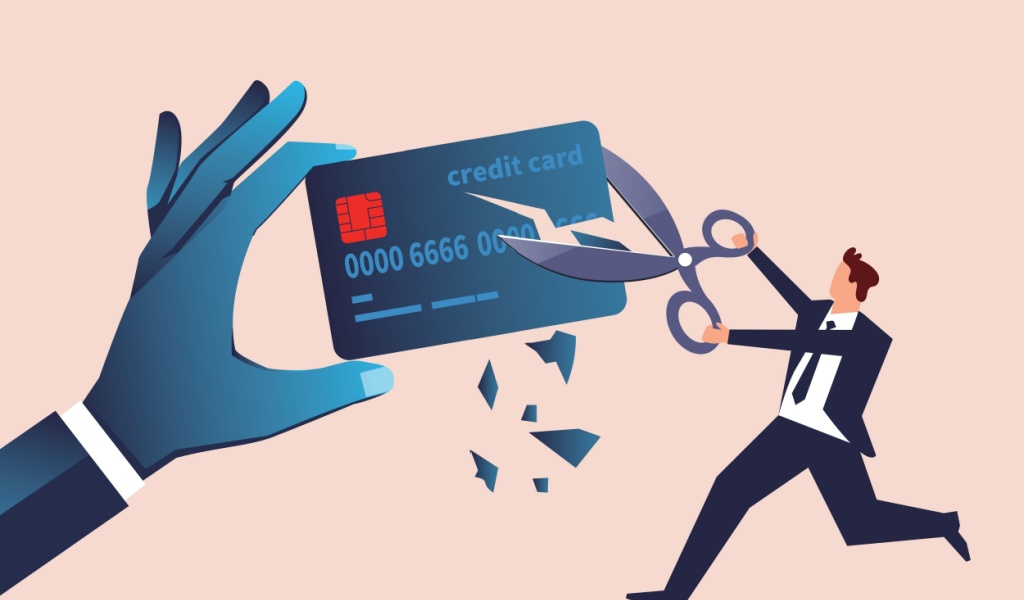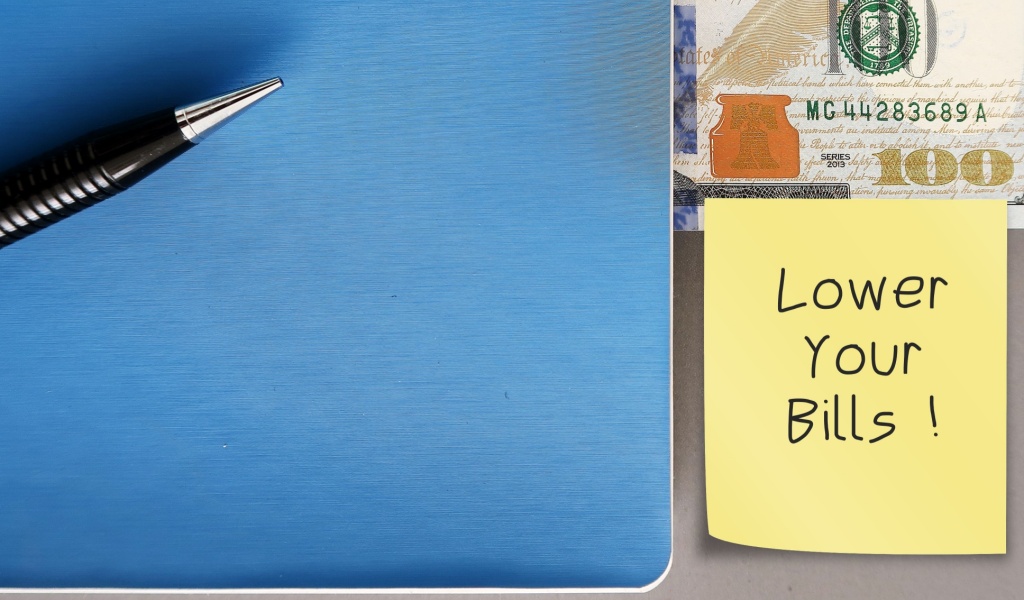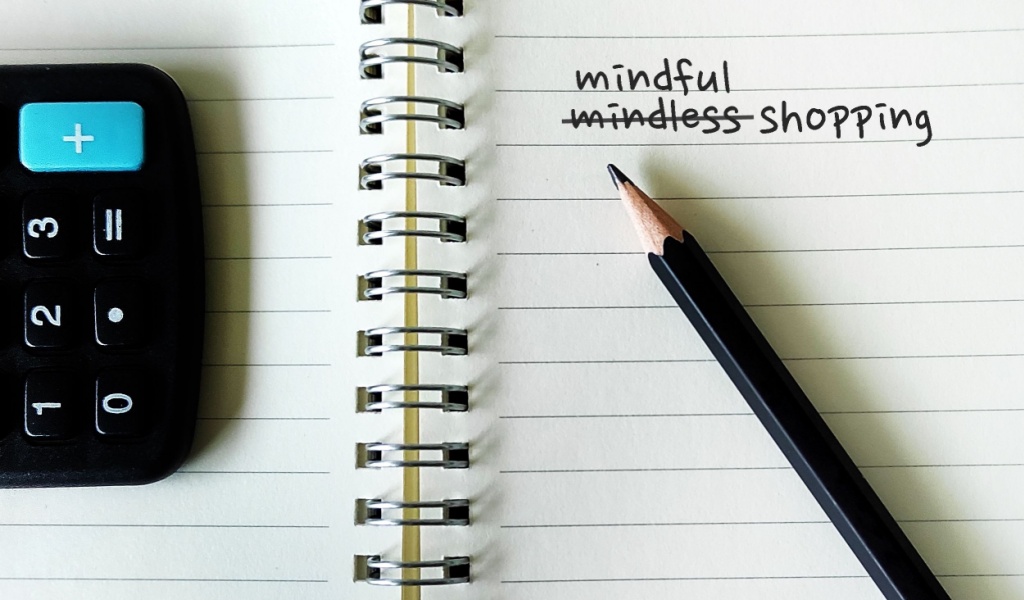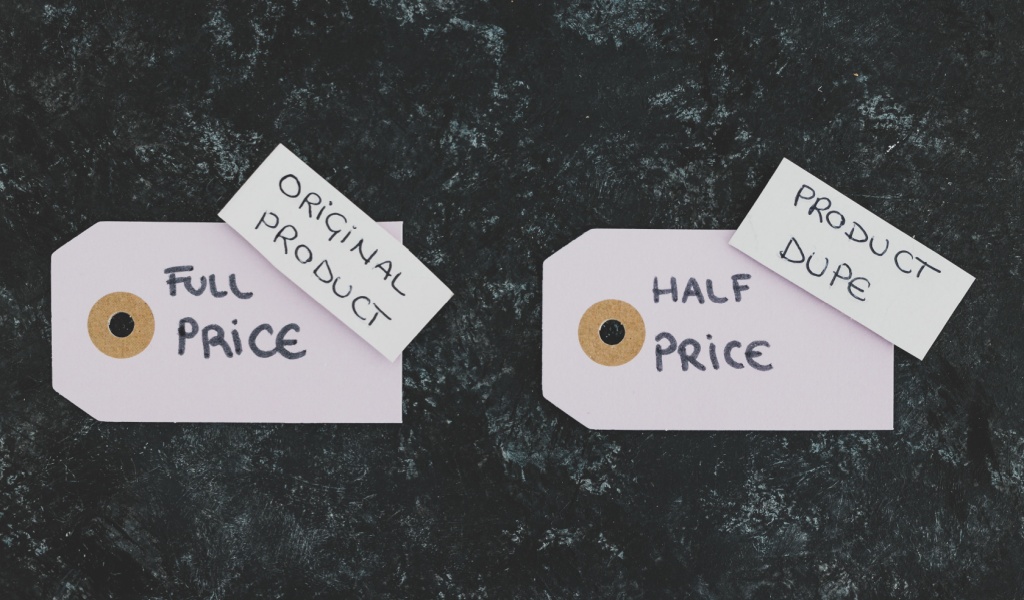Owning a credit card comes with many benefits, but another side of credit card ownership must be considered: debt. Credit card debt can take its toll on you; not only will you have to deal with the stress of having it hanging over you, but the interest can end up costing you hundreds, or even thousands of dollars, a year. In fact, as per a study, the average household in the US with a revolving credit card debt will pay over $1,000 in interest a year.
So, it makes sense to identify ways to eliminate credit card interest entirely. The only way to do this is by paying off your balance every month. Besides this, there are other ways to lower your credit card interest rate as you pay down debt. Let’s take a look below.

Settle Payments In Order Of Interest Rates
If you have debts on multiple cards, some finance experts suggest paying them off starting with the smallest balance. The idea behind this is more psychological than anything else because these quick wins will give you the motivation and momentum to keep going.
However, realistically, it’s wiser to pay your cards off in order of the interest rates, starting with the highest-rate card and gradually moving on to the lowest. Doing so will help save you the most money.
Request For A Lower Rate
Calling your card issuer and requesting a reduction is one of the simplest ways of lowering your credit card interest rate. Credit card companies are keen to retain customers, especially if you have a sound history of good credit and timely payments. Therefore, they may be willing to lower the interest rate if requested.
Before calling your credit card provider, look into your credit score and payment history and compare other card offers. This way, you will have more leverage if you have been a good customer. Moreover, with some research about competing offers from other card issues with lower rates, you can use some bargaining power to your advantage.
Don’t be discouraged if your efforts are unsuccessful, though. Some issuers might lower your rate by a few percentage points or waive fees after negotiation. Remember, persistence is key!
Make Multiple Payments A Month
Interest is assessed based on your average daily balance and not by the balance at the end of the month. So, paying more than once a month will help reduce that average balance, which, in turn, will lower your interest charges.
The earlier and more payments you make, the lower your average daily balance will be. Therefore, it would be better to make a payment every time you get paid or have some extra cash on hand – such as when you receive a tax refund or cash gift.
Don’t Put Your Medical Bills On Your Credit Card
About 27 million Americans put their medical expenses on their credit cards. This is understandable because expected and unexpected medical bills might not always fit in with your budget, making credit cards a quick option for most. But remember, this comes with a catch.
Depending on the amount of money you owe, you might end up having to pay hundreds of dollars in interest. Instead of jumping straight into debt, try talking to the hospital or the doctor to help set up an interest-free payment plan with fair monthly payments. You can check with the hospital’s billing department for more options.

Consolidate Your Debt With A Balance Transfer Card
If you owe more money than you can pay off in the coming months, it’s wise to sign up for a balance transfer card. When you transfer a balance, you move your debt from one card to another, generally with a 0% interest rate for 12 to 18 months.
Many cards will charge roughly 3% of your balance to move your debt. To get approved, you will need to have excellent credit. And remember, you cannot transfer debt among cards from the same issuer.
When you use a balance transfer, make sure to have a solid plan to pay off your credit card debt before the 0% introductory offer expires so you don’t have to pay any interest.
Use A Debt Management Program
A debt management program is an excellent way to reduce your interest rates and consolidate your payments into a monthly amount you can manage. Credit counseling agencies offer such programs to negotiate lower interest rates on your behalf.
When you enroll in a debt management program, you will make a single monthly payment to the credit counseling agency, which then disburses the payment to your creditor/creditors.
You will not be able to use your credit card or even open new lines of credit during this process. However, by lowering your interest rate, such a program can make it easier for you to settle your debt over time.
Select A Low-interest Credit Card In The Future
We would all like to spend within our means and pay off our credit cards every month. But it’s not always possible—and understandably so. Consider a low-interest credit card for future spending if you always carry a balance.
There are many options to choose from, and each one depends on your situation. For example, if you expect to carry a balance only for a short period, go for a card with a 0% introductory rate to pay off your balance in full before the rate expires. On the other hand, if you expect to carry balances beyond 12 to 18 months, choose a card with a low ongoing rate.
You can pick a low-interest or 0% card if you have a good credit score. However, this starts with settling your bills on time every month and keeping your balance low relative to your credit limit!
Final Thoughts
A popular misconception about credit card debt leads many to believe that credit cards are flawed in themselves. However, that’s not true; instead, it’s the effect of the double-digit interest rates that makes credit cards toxic to your finances. When you make purchases that you thought you’d be able to settle off within a few months, but it turns into a colossal balance that will take years to knock out, that’s when it becomes an issue!
Thankfully, very high interest rates don’t necessarily have to be a part of your credit card experience. As mentioned in the points above, there are steps you can take to reduce your credit card interest rate and save money in the future!



